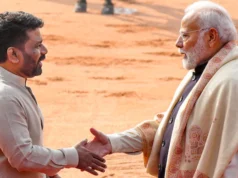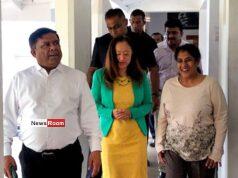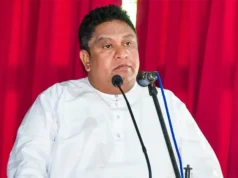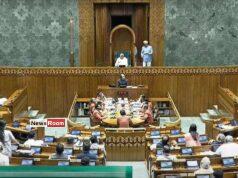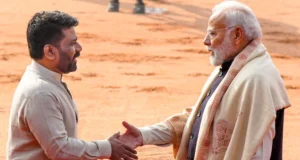The decision of the present administration to reduce the army of security personnel allotted to former presidents at enormous taxpayer expense came into effect last week. This will, no doubt, be widely welcomed countrywide. There are five living former presidents and the widow of one (Mrs. Hema Premadasa), enjoying the considerable benefits of the Presidential Entitlements Act which became effective from February 1986. This law was enacted by the government of the country’s first executive president, J.R. Jayewardene, who was the creator of this office and its first incumbent. Though privately wealthy, JRJ obviously looked to the future and the well being of his successors in that powerful office, some of of whom solemnly pledged to abolish it. It was one of many promises that remain undelivered to this day.
The present rulers, by reducing the state-provided security of former presidents and the widow of one has not thrown them to the wolves and the mercy of potential assassins. They will continue to enjoy substantial security cover, now restricted to the police alone rather than a combination of the police and military. As far as we are aware, a protest has been lodged only on behalf of former President Mahinda Rajapaksa by the Sri Lanka Podu Jana Peramuna (SLPP), the political party he leads. While Rajapaksa himself has not been heard protesting, a couple of SLPP officials including a Member of Parliament has publicly criticized the measure.
They seem to regard the war winning president as still at risk from the rump of the LTTE he destroyed in 2009. The Tigers, no doubt, assassinated President Ranasinghe Premadasa and attempted in December 1999 to assassinate President Chandrika Kumaratunga campaigning on the eve of an election seeking a second term. She lost an eye in that terrorist attack where 34 others were killed and over 105 injured. Apart from these, the LTTE successfully assassinated several political heavyweights in Sri Lanka as well as former Prime Minister Rajiv Gandhi in India. At least some in the SLPP seem to think that what remains of the LTTE, whether at home or abroad, makes Rajapaksa still vulnerable.
Last week there was some talk of MR being at risk from a drone attack. This has been discounted as far-fetched by and incumbent deputy minister. In any event there will be continued threat assessments every six months and past presidents (and Mrs. Premadasa) provided security in accordance with these. The fact is that political leaders once upon a time risked their lives and limbs not only at the hands of the LTTE but also at the hands of the JVP, particularly during its second second adventure when it was responsible for many political killings. But all that is water under the bridges and what is relevant at present is whether the leaders of today are currently under risk and require protection at public cost.
During the worst of times, readers will remember, there were road closures for long periods of time when VIPs were whizzing past in motorcades with sirens screaming and massive security backup. But at that time the risk was very real. Then Defence Secretary Gotabaya Rajapaksa narrowly escaped death in 2006 and UNP strongman Ranjan Wijeratne was blown-up by a terrorist bomb in 1991. That is now old hat. The vast majority in the country regard the security accorded to former presidents costing billions totally disproportionate to today’s reality. Hence the decision to limit the task to the police and withdraw the military from the security contingents provided to former leaders. The public have already been treated to photographs of former Presidents Mahinda Rajapaksa and Sirisena posing for group photographs with their departing guards.
Much of the manpower in the police force is assigned to the so-called presidential and ministerial security divisions at the cost of regular policing for the benefit of all the people of the country rather than a few individuals. One advocate of the retention of MR’s security argued that nothing would be saved by the withdrawal of the military as the personnel involved would report back to their detachments and continue as paid soldiers. This contention is not entirely lacking in merit. But its proponent did not take into account that there are factors other than emoluments coming into play. But these would not certainly run into the billions as the total tab does.
Quite apart from the security cost, the other entitlements former presidents draw including pensions, suitable housing, vehicles, office entitlements etc. cost the taxpayer a pretty penny. CBK recently went on record saying she receives a monthly pension of Rs. 94,000 which was not paid for nine years by the MR regime until it was restored by yahapalana. With or without arrears, she did not say. She claims she spends heavily on repairs and maintenance of her official mansion on Independence Avenue, funded by selling her land. She had returned seven assigned vehicles in 2020 in view of the country situation. Currently she has four, two for herself and two for security and she doesn’t mind if those are recalled as she’ll travel by bus.
Maithripala Sirisena, who once solicited public contributions to settle a Rs. 100 million penalty imposed on him by court over the Easter bombs, says he finds security he does not need a hindrance and he doesn’t mind withdrawal. Apart from security, where else the fat will be trimmed is not yet public as the KT Chitrasiri report on these as well as MPs perks and privileges are yet under study. But there is not an iota of doubt that public opinion strongly favours doing away with these and other perks, particularly MPs’ life pensions after just five years of parliamentary service.


